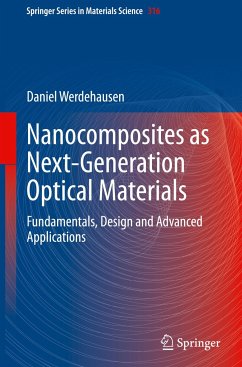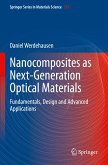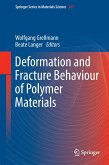This book looks at advanced nanocomposites, introducing long-awaited concepts towards bridging the gap between nanostructured optical materials and next-generation imaging systems. It investigates nanocomposites as bulk optical materials and highlights the immense potential they hold for real-world optical elements and systems, such as smartphone cameras. It covers the full spectrum of nanocomposite optical materials from their fundamental properties to analytical modeling and detailed application examples. This book also provides an in-depth discussion of the role these new materials play in the development of broadband flat optics - diffractive optical elements used for enhancing high-end broadband imaging systems. Written by an industry expert, this book seamlessly connects fundamental research and real-world applications. It is the ideal guide both for optical engineers working towards integrating new technologies, and researchers involved with fundamental research on opticalmaterials.
Bitte wählen Sie Ihr Anliegen aus.
Rechnungen
Retourenschein anfordern
Bestellstatus
Storno








